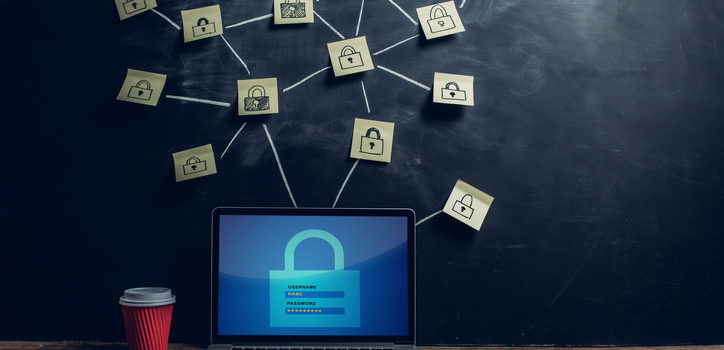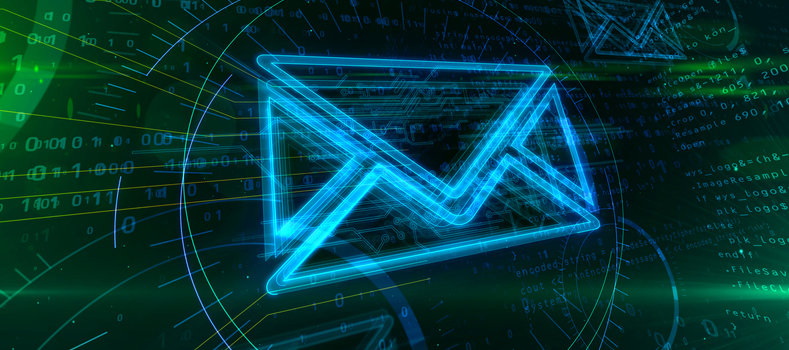As cyber threats continue to rise, securing business communications is becoming increasingly essential. Email, a fundamental tool for corporate communication, is often targeted by malicious attacks, making robust security measures indispensable.
Email encryption serves as a vital line of defense, transforming sensitive information into a code that only authorized recipients can decipher. This article explores what encrypting an email does to protect your company, shedding light on how this essential tool safeguards your business from potential threats.
Quick Takeaways
- Email encryption transforms sensitive information into unreadable code, preventing unauthorized access.
- There are two main types of email encryption: Transport Layer Encryption and End-to-End Encryption, each offering different levels of security.
- Implementing email encryption helps your company comply with industry regulations, protecting you from legal consequences.
- Email encryption enhances customer trust by safeguarding their personal information and reinforcing your company’s commitment to data security.
Understanding Email Encryption
What is Email Encryption?
Email encryption is the process of converting the content of an email into unreadable code to prevent unauthorized access. This transformation ensures that even if an email is intercepted during transmission, the information within it remains secure and confidential.
Only the intended recipient, who possesses the correct decryption key, can convert the coded message back into its original, readable format. This method is crucial for protecting sensitive data, such as financial details, personal information, and confidential business communications.
Types of Email Encryption
There are two primary types of email encryption that companies typically use:
- Transport Layer Encryption: This type of encryption occurs during the transmission of the email. It secures the connection between the sender and the recipient’s email servers, ensuring that the message is protected while it’s being sent. However, it does not secure the message once it reaches the recipient’s inbox.
- End-to-End Encryption: This method provides a higher level of security by encrypting the email from the moment it is sent until it is opened by the intended recipient. End-to-End encryption ensures that only the sender and the receiver can read the email, offering comprehensive protection against unauthorized access.

Using either type of email encryption significantly enhances the security of your company’s communications, ensuring that sensitive information remains confidential and protected from potential threats.
How Email Encryption Works
Encryption Algorithms
At the core of email encryption are encryption algorithms, which are complex mathematical formulas used to scramble the contents of an email.
Common algorithms like Advanced Encryption Standard (AES) and Rivest-Shamir-Adleman (RSA) ensure that the data is securely encrypted, making it nearly impossible for unauthorized parties to decipher the information without the correct decryption key. These algorithms are designed to protect the integrity of the email, ensuring that the content remains unchanged and confidential during transmission.
Key Management
Email encryption relies heavily on the use of cryptographic keys to encrypt and decrypt messages. Two types of keys are typically used:
- Public Key: This key is shared with anyone who wants to send an encrypted email to the recipient. It encrypts the email, ensuring that only the corresponding private key can decrypt it.
- Private Key: This key is kept secure by the recipient and is used to decrypt the email. The private key is never shared, ensuring that only the intended recipient can access the encrypted content.
Key management is crucial in the encryption process. Proper handling and storage of these keys are essential to maintaining the security of encrypted emails.
If a private key is compromised, the encryption is rendered ineffective, and unauthorized users could potentially access sensitive information. Therefore, robust key management practices are vital to ensuring that email encryption functions effectively to protect your company’s communications.
The Benefits of Email Encryption for Your Company
Protection Against Data Breaches
One of the most significant benefits of email encryption is its ability to protect your company from data breaches. Cybercriminals are increasingly targeting email communications to access sensitive information.
Approximately 73% of all data breaches involve a human element, such as errors or compromised credentials. This underscores the critical importance of encrypting emails to mitigate these risks.
Without encryption, intercepted emails can be easily read by unauthorized individuals, leading to potential:
- Financial losses
- Legal consequences
- Reputational damage

By encrypting your emails, you ensure that even if a message is intercepted, the content remains unreadable to anyone without the appropriate decryption key, effectively safeguarding your company’s valuable data.
Compliance with Industry Regulations
Many industries, such as healthcare, finance, and legal services, are subject to strict regulations regarding the handling of sensitive information. Regulations like HIPAA, GDPR, and FINRA require organizations to implement specific measures to protect personal data, including email encryption.
Failing to comply with these regulations can result in severe penalties, including hefty fines and legal action. Email encryption helps your company meet these regulatory requirements by ensuring that sensitive information is securely transmitted and accessible only to authorized recipients.
Maintaining Customer Trust
Customers expect companies to protect their personal information from unauthorized access and cyber threats. Implementing email encryption demonstrates your commitment to data security and helps build trust with your clients.
By protecting their sensitive information, you not only comply with legal obligations but also enhance your company’s reputation as a trusted partner, which can lead to increased customer loyalty and long-term success.
Protect Your Company Communications Today with Intermedia
Email encryption plays a vital role in shielding your company’s sensitive communications from unauthorized access and cyber threats. By encrypting your emails, you protect valuable data, comply with industry regulations, and reinforce client trust. Strengthening your company’s security strategy with robust encryption practices is essential.
Ready to enhance your business’s security? Discover how Intermedia’s advanced solutions can safeguard your communications and protect your data.
Learn more about our comprehensive email security offerings or request a demo today!
November 14, 2024
Explore other posts on these topics: Security



